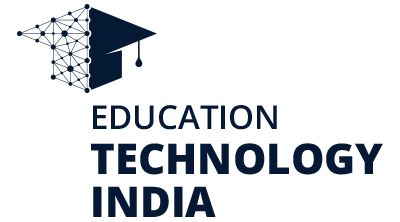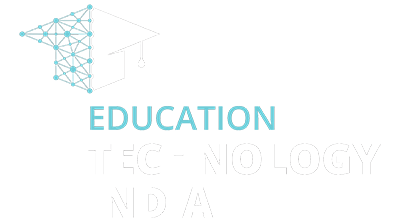
In secondary and higher education, students will have a diverse range of subjects and courses to choose from, eliminating rigid distinctions between arts and sciences, curricular and extra-curricular activities, or vocational and academic streams. This is complemented by the incorporation of experiential learning at all stages, integrating art, sports, storytelling, and more.
The policy is designed to ensure the inclusivity of all socio-cultural and gender identities, including SCs, STs, OBCs, minorities, rural and tribal areas, divyangs, children in vulnerable situations, and women. NEP also establishes a Gender Inclusion Fund to provide equal opportunities for quality education and development to all girls and transgender students.
Recognizing the crucial role of teachers in holistic development, NEP 2020 emphasizes their empowerment and motivation. National Professional Standards have been formulated to define the role and competencies of teachers, accompanied by strengthened Teacher Eligibility Tests (TETs) covering both content and pedagogy. School complexes will be upgraded with secure infrastructure to create an inclusive learning environment, and teachers’ in-service training will include factors like safety, health, and workplace environment.
To support teacher development, NEP institutes merit-based scholarships for 4-year integrated B.Ed. programs, eliminating excessive transfers and non-teaching activities. Teachers now have more autonomy in adopting pedagogical methods, with constant opportunities for improvement through workshops and online platforms.
The policy also emphasizes the preservation of Indian languages, arts, and culture. Mother tongue is designated as the medium of instruction until Grade 5, with a commitment to providing quality textbooks in local languages. NEP promotes a three-language formula with flexibility and encourages the learning of classical and foreign languages.
Digital transformation is a key focus, with investments in state-of-the-art digital infrastructure and the integration of technology such as artificial intelligence, blockchains, and machine learning. Existing e-learning platforms like SWAYAM and DIKSHA will be integrated, providing teachers with tools to assess learner progress. The National Educational Technology Forum has been established to facilitate the exchange of ideas on technology’s role in enhancing educational processes.
In conclusion, the new National Education Policy by the Modi government marks a significant shift, ushering in a new era for education in India. With its emphasis on holistic education, flexibility, skill development, technological integration, language diversity, and global collaboration, the NEP lays the foundation for a brighter and more prosperous future. It aims to instill a sense of identity and belongingness among children, addressing current and future challenges to empower learners and, by extension, the nation as a whole.
In a historic move, the Modi government has initiated a new era of educational transformation by introducing the National Education Policy (NEP). Representing a visionary approach, NEP 2020 aims to align education in India with the country’s cultural values and future requirements. Long-awaited, the policy brings crucial reforms to make education not only comprehensive, adaptable, and inclusive but also multidisciplinary and technology-driven. The NEP reflects the commitment of the Modi government to empower the youth and guide the nation towards a knowledge-centric future.
India has long been regarded as the birthplace of ancient wisdom and knowledge. The country’s traditions have consistently emphasized the pursuit of knowledge (jnan), wisdom (pragya), and truth (Satya) as the highest human goals, with the education system designed to support these objectives. However, the contemporary landscape of Indian education has largely been influenced by the British system, intended to produce clerks and bureaucrats. The consequences of such policies are evident today, with an excessive emphasis on achieving high marks, rote learning, and memorization rather than understanding. Parents often push their children to study diligently for the sole purpose of securing a lucrative job. Consequently, education is predominantly viewed as a tool for financial security, with limited attention given to building character or instilling values or virtues. NEP 2020 aims to revolutionize this perspective.
Restructuring of School Education
The structure of school education, both in terms of curriculum and teaching methods, has been revamped to effectively address the developmental requirements of students aged 3 to 18. The new framework for school education follows a 5+3+3+4 model, encompassing foundational, preparatory, middle, and secondary stages, among others. The foundational stage, starting at age 3, focuses on establishing a robust foundation through Early Childhood Care and Education (ECCE). Substantial investment in ECCE has the potential to positively influence the participation and growth of young children within the educational system. Incorporating a blend of local traditions and global best practices, NEP 2020 ensures the universal delivery of high-quality ECCE, particularly strengthening Anganwadis in socio-economically disadvantaged areas, including tribal regions.
The policy introduces the National Mission on Foundational Literacy and Numeracy to address the challenge faced by approximately 5 crore students who struggle with basic reading, writing, and numerical skills. The top priority is given to achieving universal foundational literacy and numeracy in primary schools by 2025.
In pursuit of this objective, a set of high-quality learning resources for reading and basic mathematics will be accessible through the Digital Infrastructure for Knowledge Sharing (DIKSHA). Additionally, enjoyable and inspirational books will be developed, translated into all local languages, and made accessible in school and public libraries. The implementation of a National Book Promotion Policy aims to ensure widespread access and readership of books across various geographies, genres, and languages.
Another goal of the NEP is to reduce current dropout rates, particularly after Grade 5 and Grade 8, and ensure universal access to education at all levels. This involves establishing adequate infrastructure for safe and engaging school education, ensuring a consistent supply of trained teachers, and closely monitoring students at all learning levels. Additionally, alternative education centers will be established in collaboration with civil society to reintegrate children, including those of migrant laborers, who have dropped out due to various circumstances back into mainstream education.
With the National Skills Qualifications Framework recognizing prior learning experiences, vocational education receives a boost. The NEP envisions the phased integration of vocational education into the school and higher education structure over the next 10 years.
NEP 2020 introduces a single regulator for higher educational institutions (excluding medical and legal education), aiming to reshape the regulatory framework for enhanced empowerment and autonomy for teachers to innovate.
Under the new policy, institutions can offer varying formats of Master’s programs, while undergraduate degrees will have a duration of either 3 or 4 years, with multiple entry and exit options. Students can receive certificates after completing one year, a Bachelor’s degree after a 3-year course, and a diploma after two years of study.
While common entrance exams for universities will be implemented, the government plans to phase out the affiliation of colleges over the next 15 years, adopting a state-wise approach to grant autonomy to colleges.
NEP 2020 emphasizes a move towards multidisciplinary education by introducing credit-based courses and projects in areas such as environmental education, community service, and value-based education.
The policy also prioritizes research and innovation with the establishment of the National Research Foundation (NRF) and start-up incubation centers in higher educational institutions. The NRF aims to foster a research culture by funding merit-based and peer-reviewed research, promoting greater industry-academic linkages and interdisciplinary research.
In terms of assessment, NEP 2020 shifts from a rote memorization-based approach to a competency-based one. The Performance Assessment, Review, and Analysis of Knowledge for Holistic Development (PARAKH) under the National Assessment Centre will set norms and guidelines for student evaluation, focusing on achieving learning outcomes and skill development. The National Testing Agency will pursue similar goals at the university level by offering quality common aptitude tests and specialized common subject exams multiple times a year in various disciplines.
The curriculum and pedagogy reforms under NEP 2020 prioritize holistic development in the Indian education system. The policy not only emphasizes academic excellence but also seeks to reshape the educational paradigm to foster character development, critical thinking, creativity, and well-rounded personalities. By introducing a flexible and multidisciplinary approach, NEP encourages students to explore diverse fields and acquire 21st-century skills for a more comprehensive understanding of the world.
In secondary and higher education, students will have a diverse range of subjects and courses to choose from, eliminating rigid distinctions between arts and sciences, curricular and extra-curricular activities, or vocational and academic streams. This is complemented by the incorporation of experiential learning at all stages, integrating art, sports, storytelling, and more.
The policy is designed to ensure the inclusivity of all socio-cultural and gender identities, including SCs, STs, OBCs, minorities, rural and tribal areas, divyangs, children in vulnerable situations, and women. NEP also establishes a Gender Inclusion Fund to provide equal opportunities for quality education and development to all girls and transgender students.
Recognizing the crucial role of teachers in holistic development, NEP 2020 emphasizes their empowerment and motivation. National Professional Standards have been formulated to define the role and competencies of teachers, accompanied by strengthened Teacher Eligibility Tests (TETs) covering both content and pedagogy. School complexes will be upgraded with secure infrastructure to create an inclusive learning environment, and teachers’ in-service training will include factors like safety, health, and workplace environment.
To support teacher development, NEP institutes merit-based scholarships for 4-year integrated B.Ed. programs, eliminating excessive transfers and non-teaching activities. Teachers now have more autonomy in adopting pedagogical methods, with constant opportunities for improvement through workshops and online platforms.
The policy also emphasizes the preservation of Indian languages, arts, and culture. Mother tongue is designated as the medium of instruction until Grade 5, with a commitment to providing quality textbooks in local languages. NEP promotes a three-language formula with flexibility and encourages the learning of classical and foreign languages.
Digital transformation is a key focus, with investments in state-of-the-art digital infrastructure and the integration of technology such as artificial intelligence, blockchains, and machine learning. Existing e-learning platforms like SWAYAM and DIKSHA will be integrated, providing teachers with tools to assess learner progress. The National Educational Technology Forum has been established to facilitate the exchange of ideas on technology’s role in enhancing educational processes.
In conclusion, the new National Education Policy by the Modi government marks a significant shift, ushering in a new era for education in India. With its emphasis on holistic education, flexibility, skill development, technological integration, language diversity, and global collaboration, the NEP lays the foundation for a brighter and more prosperous future. It aims to instill a sense of identity and belongingness among children, addressing current and future challenges to empower learners and, by extension, the nation as a whole.
Source : National Education Policy






